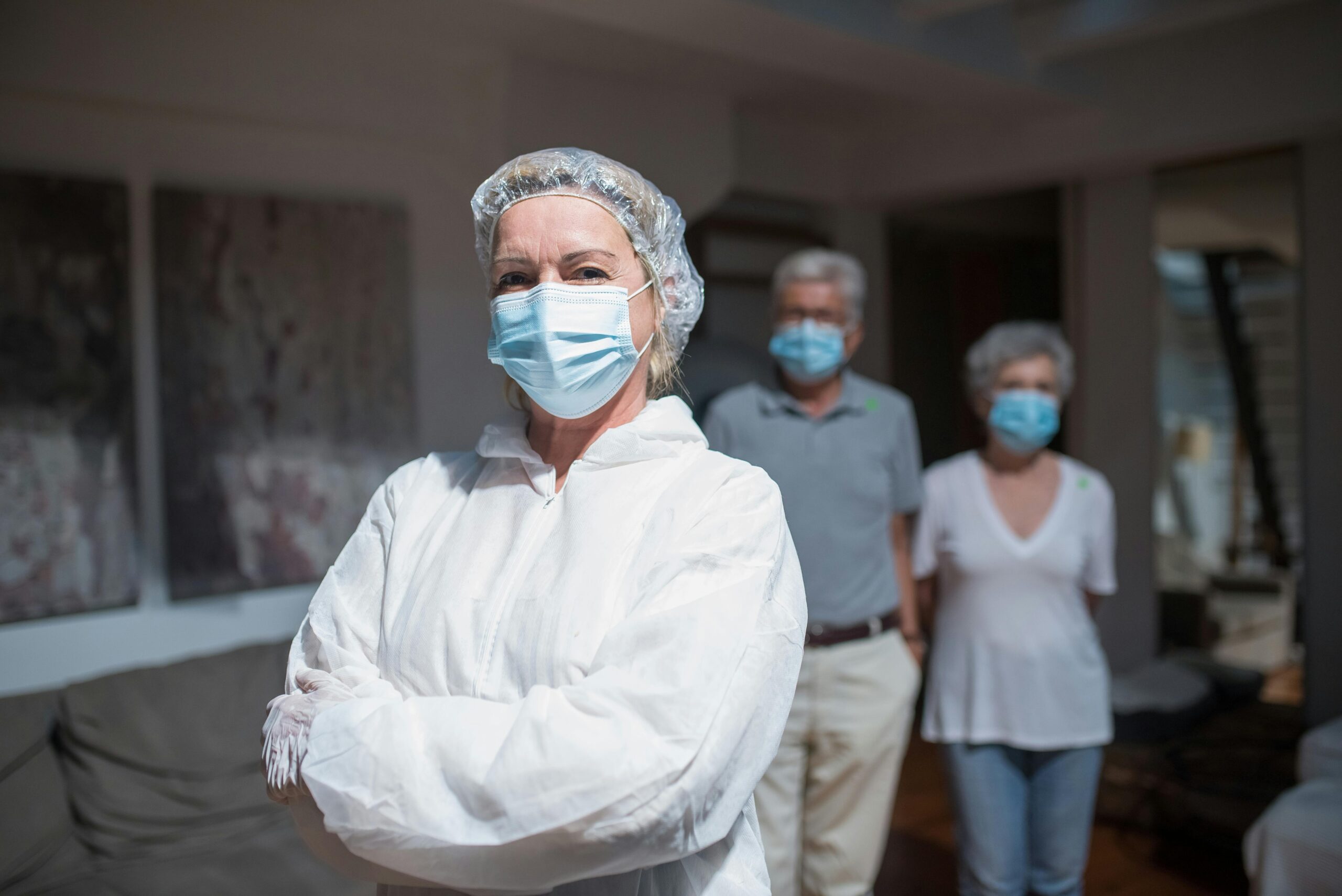Hire Infection Preventionist – Dialysis: They play a vital role in Dialysis Centres. They ensure that infection control practices are strictly followed, maintaining the health and safety of patients. By hiring top talent in this field, centers gain experts who enhance patient care and operational efficiency.
Why Hire a Infection Preventionist – Dialysis?
Infection Preventionists – Dialysis are essential for maintaining high hygiene standards and reducing infection risks within dialysis centers. Their expertise ensures compliance with regulations, which ultimately leads to better patient outcomes.
- Enhance Patient Safety: Hiring a skilled Infection Preventionist ensures that safety protocols are properly implemented. This reduces the risk of infections and improves overall patient health outcomes, fostering trust in your facility.
- Compliance with Regulations: These professionals help your center meet dialysis hygiene standards set by healthcare authorities. This compliance not only avoids legal penalties but also promotes quality care.
- Operational Efficiency: With a dedicated Infection Preventionist, your staff can focus on patient care while they manage infection control measures. This balance improves workflow and productivity in your dialysis center.
- Training and Education: A knowledgeable Infection Preventionist can train your staff on best practices for infection control. This education is crucial in maintaining consistent quality care across all levels of staff.
- Risk Reduction: These experts assess and mitigate risks associated with infections in dialysis treatment. Their proactive measures safeguard patient health and diminish potential outbreaks.
What Are the Types of Infection Preventionist – Dialysis?
- Clinical Infection Preventionist: Focused on direct patient care, they monitor infection rates and implement best practices within clinical settings. Their insights are crucial for effective infection control.
- Infection Control Coordinator: Responsible for developing and managing infection prevention policies. They ensure the entire center adheres to hygiene protocols and provide guidance during audits.
- Quality Improvement Specialist: This type focuses on analyzing infection data and improving care processes. Thus, heir work helps enhance service quality by identifying areas for growth.
- Infection Prevention Educator: Specializes in training staff and patients about infection prevention strategies. Thus, heir role is essential for promoting awareness and adherence to protocols.
- Research Infection Preventionist: Engaged in studying infection trends, these professionals contribute valuable data that informs infection prevention practices across dialysis centers.
Where to Find Infection Preventionist – Dialysis?
- Online Job Boards: Popular job boards like Indeed and LinkedIn allow for wide visibility, but they may yield many unqualified applicants. Pulivarthi Group streamlines this by offering pre-vetted candidates, saving you time.
- Staffing Agencies: These agencies can help match your needs with qualified professionals quickly. However, agencies often charge high fees; Pulivarthi Group offers competitive pricing with tailored solutions.
- Professional Networks: Networking within industry-specific groups can uncover hidden talent. While time-consuming, Pulivarthi Group connects you with established professionals actively seeking new opportunities.
- Universities and Training Programs: Partnering with educational institutions can yield fresh talent. However, finding candidates with necessary experience can be challenging. Pulivarthi Group fills this gap by pre-vetting qualified professionals.
What Are the Challenges Faced While Hiring Infection Preventionist – Dialysis?
- Assessing Technical Skills: It can be difficult to evaluate the specialized skills required for infection prevention effectively. Thus, this uncertainty can lead to hiring less competent candidates, impacting quality of care.
- Cultural Fit: Finding candidates who align with your center’s culture and values is tough. Misalignment can disrupt team dynamics and lower job satisfaction among staff.
- High Turnover Rates: The healthcare industry often faces staffing shortages, leading to high turnover. This instability affects patient care continuity, creating challenges in maintaining quality standards.
- Keeping Up with Regulations: Infection control regulations are constantly evolving, making it difficult to find candidates who are fully knowledgeable. Non-compliance can result in serious consequences for your facility.
- Lack of Experience: Many candidates may be new to the field and lack the hands-on experience needed for the role. Without proven skills, they may struggle to provide effective infection control.
What Qualifications and Licenses Must a Infection Preventionist – Dialysis Have?
- Bachelor’s Degree: A degree in nursing or a related field is critical as it provides foundational knowledge necessary for understanding infection prevention in nephrology.
- Infection Control Certification: Certifications such as the Certification in Infection Control (CIC) demonstrate a candidate’s commitment and expertise in infection compliance nephrology. This credential is a strong asset in ensuring quality care.
- Clinical Experience: Typically, candidates should have 2-3 years of experience in a healthcare setting, particularly in nephrology. This experience helps them apply their knowledge effectively within dialysis centers.
- Continuing Education: Ongoing training and learning about new infection prevention techniques and technologies is essential. This commitment aligns with industry standards and improves patient care.
Sample Infection Preventionist – Dialysis Job Description
Job Overview: The Infection Preventionist – Dialysis ensures compliance with infection control standards within our facility. They play a crucial role in safeguarding patient health.
Key Responsibilities: Implement hygiene protocols, conduct audits, and train staff on infection prevention. They also maintain detailed records of infection rates.
Required Skills: Strong analytical skills, attention to detail, and excellent communication abilities are vital. These skills aid in effective training and compliance monitoring.
Qualifications: A bachelor’s degree in nursing or related field and certification in infection control are mandatory. Relevant work experience strengthens the candidate’s profile.
Infection Preventionist – Dialysis Interview Questions: What to Ask Infection Preventionist – Dialysis at the Interview
- What infection control practices do you prioritize in a dialysis center? This question assesses their understanding of essential protocols critical for patient safety.
- Can you describe a time you handled an infection outbreak? This inquiry provides insights into their problem-solving skills and crisis management abilities.
- How do you keep updated on infection prevention regulations? Their answer reflects their commitment to ongoing education and staying informed about industry changes.
- What training methodologies do you use for staff education? Understanding their approach reveals their capability to effectively instruct and implement best practices among the team.
- Can you give an example of a successful infection risk reduction initiative you led? This demonstrates their practical experience and results-oriented mindset in the field.
When Should I Hire a Infection Preventionist – Dialysis?
Hiring a Infection Preventionist is crucial during situations like expanding services, introducing new treatments, or at peak project demands. Additionally, if existing staff lack expertise in infection control, a dedicated specialist can fill key skill gaps. Their presence can significantly enhance patient safety and improve overall operation efficiency.
How Can I Test Infection Preventionist – Dialysis Skills?
- Role-Specific Assessments: Conducting assessments tailored to infection control can provide insight into a candidate’s practical skills and knowledge of industry standards.
- Real-World Tasks: Assigning real-world scenarios related to infection prevention allows candidates to showcase their problem-solving skills and how they apply their knowledge in practice.
- Peer Reviews: Gathering feedback from previous employers or colleagues can provide a third-party viewpoint on the candidate’s competency and interpersonal skills.
- Case Studies: Presenting case studies for candidates to analyze and discuss helps you evaluate their critical thinking and analytical abilities in infection prevention contexts.
How to Conduct an Effective Cultural Fit Assessment for Infection Preventionist – Dialysis?
- Situational Questions: Ask candidates how they would handle specific scenarios in your center. Thus, their responses can reveal their alignment with your operational values and goals.
- Review Company Values: Discuss the organization’s mission and values to see how candidates perceive them. So, candidates who resonate with your center’s ethics will likely fit in better.
- Team Participation: Involve current team members in the interview process to evaluate potential team dynamics. Their perspectives can provide insight into candidate compatibility.
- Behavioral Questions: Focus on previous experiences to understand how candidates act in various situations, revealing their problem-solving approaches and teamwork capabilities.
What Is the Average Salary of a Infection Preventionist – Dialysis in the US?
The average salary for Infection Preventionists – Dialysis ranges from $70,000 to $90,000 annually, depending on experience and location. Note that some states, particularly those with higher living costs, may offer salaries above this range. As the demand for infection control continues to rise, competitive compensation reflects the importance of this role in healthcare.
What Are Some Infection Preventionist – Dialysis-Specific SOPs, and How to Create Them?
- Hand Hygiene Protocol: This SOP outlines proper handwashing techniques and the use of sanitizers to prevent the spread of infections, ensuring compliance with hygiene standards.
- Infection Surveillance SOP: A standard procedure for monitoring and recording infection rates aids in identifying trends and implementing necessary interventions.
- Equipment Sterilization SOP: This procedure defines sterilization methods for all equipment used in dialysis to maintain cleanliness and prevent cross-contamination.
- Staff Training SOP: This SOP ensures that all staff receive consistent training on infection control measures, promoting a culture of safety within the center.
How to Retain Infection Preventionist – Dialysis Effectively?
- Competitive Benefits: Offer attractive salary packages and health benefits to keep your Infection Preventionists motivated and committed to your organization.
- Supportive Work Environment: Create a culture where employees feel valued and heard. Support and recognition play a significant role in job satisfaction.
- Professional Development: Encourage continued education and training opportunities. Investing in your staff’s growth builds loyalty and enhances their expertise.
- Open Communication: Foster an environment of open dialogue where employees feel comfortable sharing ideas and concerns. This openness enhances team trust and cohesion.
Hire Infection Preventionist – Dialysis with Pulivarthi Group
Partnering with Pulivarthi Group allows you to access pre-vetted, highly skilled Infection Preventionists – Dialysis efficiently. Our expertise in delivering qualified candidates simplifies your hiring process, cuts costs, and ultimately helps your facility excel in patient care. Choose Pulivarthi Group as your trusted staffing partner to meet your infection control needs effectively.



